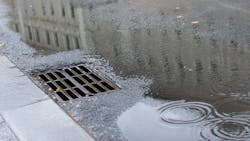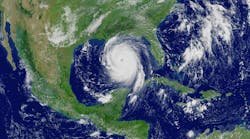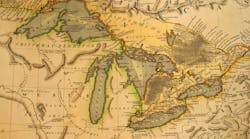The Water Environment Federation's (WEF) Stormwater Institute (SWI) released the results of the third biennial national-level assessment of needs and challenges in the MS4 sector. As with the two previous surveys, the 2022 survey is statistically significant and represents input from 47 states as well as the District of Columbia and Puerto Rico. The questions posed in the WEF National MS4 Needs Assessment Surveys focus on information related to the identification of information and resource needs of MS4 permittees and more.
Survey findings
According to the survey's executive summary, the top three challenges identified are aging infrastructure, lack of funding or availability of capital, and workforce and staffing needs. These were rated as challenging or very challenging by more than 50% of all respondents. The survey revealed the greatest needs for informational/technical resources are funding and financing, asset management, green infrastructure and other innovative Stormwater Control Measures. Additionally, approximately 41% of MS4s do not think the federal stormwater program can meet Clean Water Act goals in the long term.
The summary also stated that with more 90% of respondents stating that a resilience plan had not been prepared to date and more than 80% not having a definite plan to do so in the future, MS4s are unprepared to address the many issues associated with resilience impacts. The survey included an inquiry on current budgets for stormwater programs and estimated funding gaps. The survey results indicate that between $23.5B and $40.5B is spent annually by municipal governments on stormwater programs and infrastructure investments nationwide. Only 32% of respondents stated that they do not need funding beyond existing budgets. According to the summary, the 2022 survey analysis estimates the annual funding gap to be $6.2B for all MS4s across the U.S. This gap underpins the recommendation from the 2020 U.S. Environmental Protection Agency report on stormwater funding stating that there is a need to “increase federal investment in stormwater infrastructure, including additional grants and loans to local governments.”
Take Aways
The drive for additional funding at all levels will continue into the foreseeable future. Changes to programs such as the Clean Water State Revolving Fund or the development of new federal funding and financing programs that are better suited to the stormwater sector, can help to reduce this need.
Ultimately, a significant increase in local revenues through stormwater utilities and other similar frameworks is needed for sustainable programs. The rise in topics such as the need for asset management and the reality of aging infrastructure, reflects the maturation of the stormwater sector.The age of the MS4 program is starting to equal the design life for stormwater infrastructure implemented early in the MS4 program’s history, so we may be entering into a new phase in the stormwater sector that will see a rise in stormwater infrastructure investments defined through repair and replacement. We have an opportunity to integrate new infrastructure that can bear multiple benefits including resilience, water conservation/reuse and reduced urban flooding, in preparation for the impacts of climate change in the future.
Resources:
https://www.wef.org/topics/practice-areas/ stormwater-and-watershed-management/ms4-survey/






